Episodes
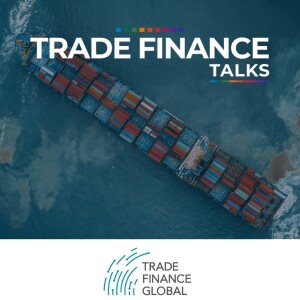
Tuesday Dec 13, 2022
Tuesday Dec 13, 2022
With so many of our daily goods coming from abroad, Incoterms play a much more significant role in our lives than most of us realise.
Some estimates indicate that International Commercial Terms (Incoterms) help to facilitate around 90% of all goods and transport transactions worldwide.
However, despite their widespread use and importance, these terms are often the source of a lot of confusion for importers and exporters alike.
To help clarify the subject, Trade Finance Global (TFG) spoke with Holly Jade O'Leary, co-founder and director of Alinea Customs.
Read the article here: tradefinanceglobal.com/posts/podcast-s1-e104-incoterms-customs-case-studies-industry-challenges/
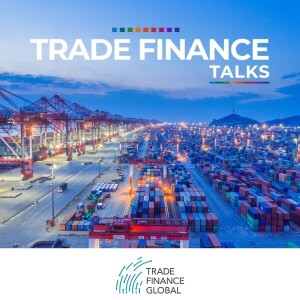
Tuesday Nov 15, 2022
Tuesday Nov 15, 2022
Maritime transport is the backbone of international trade and the global economy, with over 80% of the volume of international trade and goods being carried by sea.
The shipping industry has seen varying conditions over the course of the last two years, having been greatly impacted by COVID-19 and subsequent supply chain issues. This has been compounded by other events, such as the current Russia-Ukraine conflict.
Given the complexity of the topic, Annie Kovacevic sat down with Grant Hunter, director of standards, innovation, and research at BIMCO, to learn more about hot topics in the industry.
https://www.tradefinanceglobal.com/posts/podcast-s1-e103-float-sink-bimco-discusses-ebl-adoption-standards-interoperability/
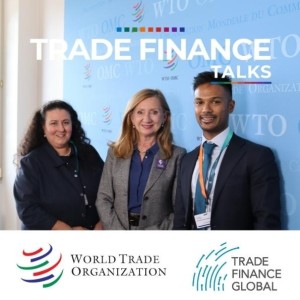
Friday Nov 04, 2022
Friday Nov 04, 2022
To learn more about how the WTO is championing women-led MSMEs, Trade Finance Global (TFG) moderated a panel discussion at the WTO Public Forum in September 2022 with leaders in the field.
Participants in the WTO panel included Jennifer Buckley, founder and managing director of women-led independent impact investment firm, Sweef Capital; Jessica Espinoza, CEO of gender-focused global investment body, 2X Collaborative; and
Susan Barton, team leader, trade strategy and outreach, UK Foreign, Commonwealth & Development Office (FCDO).
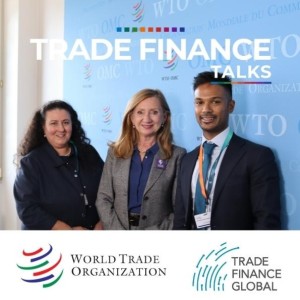
Friday Nov 04, 2022
Friday Nov 04, 2022
Women-led MSMEs are playing a critical role by creating income, generating opportunities, and supplying goods and services used daily in rural and urban areas.
Anabel González, WTO deputy director-general, hosted a roundtable discussion at the WTO Public Forum in September 2022.
Trade Finance Global (TFG) moderated the event which discussed technology’s role in bridging the financing gap that women-owned MSMEs face.
https://www.tradefinanceglobal.com/posts/podcast-p1-s1-e102-increasing-access-to-financing-and-empowering-women-owned-or-women-led-msmes/
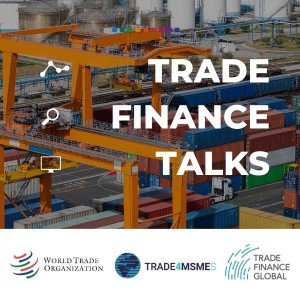
Thursday Oct 20, 2022
Thursday Oct 20, 2022
At the WTO’s Public Forum in September 2022, helping MSMEs access trade and trade finance, especially during the current economic times, has been one of the top agenda items.
To learn more about how the WTO is putting its weight behind the cause, Trade Finance Global (TFG) spoke with Uruguay's Ministry of Foreign Relations, Mauro Bruno.
https://www.tradefinanceglobal.com/posts/podcast-s1-e101-trade4msmes-on-breaking-down-international-barriers-to-trade
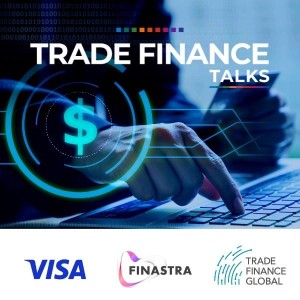
Monday Oct 10, 2022
Monday Oct 10, 2022
To find out more about BaaS and innovations within the sector, Trade Finance Global (TFG) spoke with Valli Ardalan, global head of revenue and sales at Visa Direct, and Barry Rodrigues, EVP Payments Business Unit at Finastra.
https://www.tradefinanceglobal.com/posts/podcast-s1-e99-the-future-of-baas-and-innovation-in-the-cross-border-payments-space
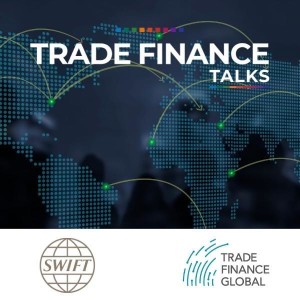
Friday Oct 07, 2022
Friday Oct 07, 2022
Businesses and industries that were unprepared for a quick transition to a digital economy were hit hard during the early months and subsequent years.
Trade finance was one of these industries.
Trade Finance Global (TFG) spoke with Rishikesh Tinaikar, global head of corporates and Trade Go to Market at SWIFT, to further explore the pandemic recovery and how lockdowns are accelerating trade finance’s push toward digitalisation.
https://www.tradefinanceglobal.com/posts/podcast-s1-e100-swift-thinking-how-the-global-payments-system-can-help-digitalise-trade-finance/
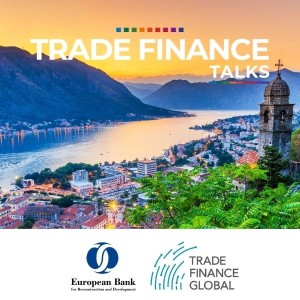
Friday Sep 30, 2022
Friday Sep 30, 2022
The European Bank for Reconstruction and Development’s (EBRD) Trade Facilitation Program forum in Istanbul heavily featured discourse around Southeastern European countries, namely promoting trade into the region.
To learn more about the trade ecosystem in the Balkan peninsula, TFG joined Ana Golubovic, a management board member at Hipotekarna Banka in Montenegro, Europe.
https://www.tradefinanceglobal.com/posts/podcast-s1-98-hipotekarna-banka-on-trade-finance-multilateral-support-digital-transition-in-montenegro/

Thursday Sep 29, 2022
Thursday Sep 29, 2022
Changing this mindset and highlighting the human lives behind international trade policy is what Clara Weinhardt, assistant professor in international relations at Maastricht University, hopes to do with the Faces of Trade Diplomacy project.
Find out more:
https://www.tradefinanceglobal.com/posts/podcast-s1-ep97-faces-of-trade-the-people-behind-the-policies
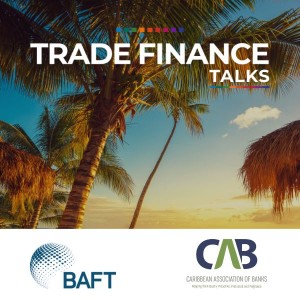
Thursday Sep 15, 2022
Thursday Sep 15, 2022
Following on from the BAFT Annual Annual Meeting in Washington, Trade Finance Global (TFG) sat down with Dalton Lee, chairman of the Caribbean Association of Banks (CAB), to discuss the status of the correspondent banking world, and what cutting such relationships means to Caribbean economies.
Find out more:
https://www.tradefinanceglobal.com/posts/podcast-s1-ep96-correspondent-banking-in-the-caribbean-the-impact-of-derisking-on-the-real-economy






